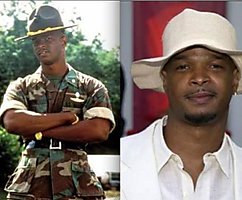Neuroscientist Lisa Feldman: How the brain creates emotions
 Bashny.Net
Bashny.Net
Emotions are created by our brainDespite the fact that people tend to smile when they are happy, or frown when upset, by itself, the facial expression means nothing, says neuroscientist Lisa Feldman Barrett.

Her interview about why in the face it is impossible to define emotions, how we learn to be sad and what happens to the feelings, to Express them in our language has no words:
You argue that emotions are created by our brain. This idea differs from the view that has existed until now?
According to classical ideas, emotions happen to you. Something happens, the neurons react and on your face appears a typical expression that you can't control. In accordance with this view, we frown when angry, and inflated lips when upset, and it is also believed that people all over the world not only have the same set of expressions, but are born with the ability to automatically recognize them.
From my point of view when it comes to emotions, facial expressions by itself says nothing. However, I do not claim that when the brain creates a strong sense, there are no physical signs on the strength of this feeling. People do smile when happy and frown when sad. But I say that there is no single mandatory facial expressions. And emotions are not something objective, they are learning, and they design our brain.
— You write as studies show people the face and ask him to identify the emotion, and people invariably wrong, for example confusing fear and anxiety. But fear and anxiety seem to be fairly close feelings. People confuse emotions that are far from each other, such as happiness and guilt?
— It is interesting that you say that wine and happiness are far from each other. I often show people the top half of the photo face of his daughter, and they say she seems sad or guilty or depressed, and then I show them a photo entirely, and in fact, her face wreathed in pleasure, because it is in the Museum of chocolate.
If you compare the face with something else, it will always lose. If in one case, to show only the face, and another to put him in pair with voice, posture or description of a situation, it becomes clear that the facial expressions in itself is difficult to interpret. During some experiments, the participants were shown whole faces, but completely hid the body. Shows the people who have expressed negative or positive emotions, and subjects, without context, is constantly mistaken. If you take superpositive face, and placed in a negative situation, its expression is perceived to be more negative. Moreover, people do not just interpret the facial expression as negative, but look at him differently, which can be fixed by using software that tracks the eye movement.
Facial expressions that are considered "correct" is just a stereotype. People Express their feelings in many different ways.

What about the phenomenon of bitchy face syndrome (resting bitch face)? It is discussed a lot, people often believe that in this way they can accurately determine who is bitch and who is not, but the women challenge such assertions and say that they have "just a face".
We explored this question, and "bitchy" face is really just a neutral expression. If you look closely, there is nothing hostile. People use the context or your knowledge about this man to see more negativity in his face.
— I wonder what all these insights mean for emotional programming or startups that try to analyze your facial expression to understand what you feel? Does this mean that it is useless?
— The perspective in which doing this now, will lead many companies to failure. If people rely on the classic point of view with the development of their research — if you are trying to create software or technology to identify the sullen, frowning eyebrows or inflated lips and so on and conclude that such expressions indicates anger, then good luck.
But if emotional programming and other technologies in this region will slightly readjust your goals, then they will have the opportunity to make a revolution in the science of emotions. We need to learn to accurately track human motion, and it would be so useful to measure them and record as many internal and external context.
So, we know that emotions are not universal. Can you explain your argument that emotions are created? As I understand it, you say the following: we have a basic sense (like "pleasant" or "unpleasant") and physical sensations that at times are triggered by the environment. Then we interpret these feelings as emotions, such as anger or guilt. How does it work?
The brain evolved for the purpose of regulation of work of the body. The brain has to decide what to invest their resources: what I will spend and what reward will you get? Our brain is constantly adjusting and constantly predicts that the body will to feel to decide how much energy to spend. When these feelings are very strong, we usually use the emotional concepts to sort out incoming sensory information. We create emotions.
— Let's go back. What is emotional concepts?
Is what you know about emotions; you may not necessarily describe it in words, but your brain knows what to do with it, and you're familiar with the feelings arising from this knowledge. When you are driving, your brain knows how to do some things automatically, and you don't need them to articulate or even be aware of this step in the process to successfully go.
When you know the emotional concept, you experience the emotion. For example, in our culture there is "sadness", in the culture of Tahiti it is not. Instead, they have the word, the closest translation of which sounds like "a kind of fatigue that you experience the flu". It is not the equivalent of sadness is what they feel in cases where we would be sad.
— How we learn these concepts?
First we learn the concepts from their parents. You don't need to teach children feelings. Babies can suffer, they can feel pleasure and experience it, can be excited or calm. But the emotional concepts — for example, to feel sad when something bad happens — children are taught, although not always in the open. And this process does not end in childhood. The brain is able to combine past experience in new ways to create new ideas, to experience something new that we've never seen, not heard and not felt.
— I admire the relationship between language and emotions. From your point of view if we do not have words for emotions we can't experience?
— Here's an example: you most likely have experienced "Schadenfreude" ("the joy of the misfortune of others", gloating; the concept came to English from German) and it does not know the word, but your brain had to work hard to create these concepts and turn them into emotions. You had a lot of time to describe their feelings.
But if you know the word, if you hear it often, it is automatic, just like driving a car. This feeling is easier to run and easier for you to test it. This story is about the Americans and Schadenfreude: they have a word they often use. It's a feeling you can recall very quickly.
— Helps us to control emotions understanding that they are designed?
Control of emotions is never an easy task, and you can never click your fingers to change how you feel.
But to learn new words describing emotions, it is useful because it helps to understand the nuances of emotions and better regulate them. For example, you can learn to distinguish suffering from discomfort. Due in part to this conscious meditation is so useful for the people who have chronic pain: it helps to separate the physical discomfort of suffering.
I think understanding how emotions are created, expanding the boundaries of control.You understand that if the brain uses your past to create your present, you have to put energy in the present in order to gain new experiences, which then become seeds of your future. You can grow experience now and then if you will face something similar, they are so avtomatiziruete that your brain will play them independently. published
@ Lisa Feldman Barrett, a neuroscientist, author of "How to make emotions", translated Donskaya Ksenia
P. S. And remember, just changing your mind — together we change the world! ©
Source: //theoryandpractice.ru/posts/16015-prosto-takoe-litso-kak-mozg-sozdaet-emotsii-i-pochemu-nelzya-doveryat-mimike

Her interview about why in the face it is impossible to define emotions, how we learn to be sad and what happens to the feelings, to Express them in our language has no words:
You argue that emotions are created by our brain. This idea differs from the view that has existed until now?
According to classical ideas, emotions happen to you. Something happens, the neurons react and on your face appears a typical expression that you can't control. In accordance with this view, we frown when angry, and inflated lips when upset, and it is also believed that people all over the world not only have the same set of expressions, but are born with the ability to automatically recognize them.
From my point of view when it comes to emotions, facial expressions by itself says nothing. However, I do not claim that when the brain creates a strong sense, there are no physical signs on the strength of this feeling. People do smile when happy and frown when sad. But I say that there is no single mandatory facial expressions. And emotions are not something objective, they are learning, and they design our brain.
— You write as studies show people the face and ask him to identify the emotion, and people invariably wrong, for example confusing fear and anxiety. But fear and anxiety seem to be fairly close feelings. People confuse emotions that are far from each other, such as happiness and guilt?
— It is interesting that you say that wine and happiness are far from each other. I often show people the top half of the photo face of his daughter, and they say she seems sad or guilty or depressed, and then I show them a photo entirely, and in fact, her face wreathed in pleasure, because it is in the Museum of chocolate.
If you compare the face with something else, it will always lose. If in one case, to show only the face, and another to put him in pair with voice, posture or description of a situation, it becomes clear that the facial expressions in itself is difficult to interpret. During some experiments, the participants were shown whole faces, but completely hid the body. Shows the people who have expressed negative or positive emotions, and subjects, without context, is constantly mistaken. If you take superpositive face, and placed in a negative situation, its expression is perceived to be more negative. Moreover, people do not just interpret the facial expression as negative, but look at him differently, which can be fixed by using software that tracks the eye movement.
Facial expressions that are considered "correct" is just a stereotype. People Express their feelings in many different ways.

What about the phenomenon of bitchy face syndrome (resting bitch face)? It is discussed a lot, people often believe that in this way they can accurately determine who is bitch and who is not, but the women challenge such assertions and say that they have "just a face".
We explored this question, and "bitchy" face is really just a neutral expression. If you look closely, there is nothing hostile. People use the context or your knowledge about this man to see more negativity in his face.
— I wonder what all these insights mean for emotional programming or startups that try to analyze your facial expression to understand what you feel? Does this mean that it is useless?
— The perspective in which doing this now, will lead many companies to failure. If people rely on the classic point of view with the development of their research — if you are trying to create software or technology to identify the sullen, frowning eyebrows or inflated lips and so on and conclude that such expressions indicates anger, then good luck.
But if emotional programming and other technologies in this region will slightly readjust your goals, then they will have the opportunity to make a revolution in the science of emotions. We need to learn to accurately track human motion, and it would be so useful to measure them and record as many internal and external context.
So, we know that emotions are not universal. Can you explain your argument that emotions are created? As I understand it, you say the following: we have a basic sense (like "pleasant" or "unpleasant") and physical sensations that at times are triggered by the environment. Then we interpret these feelings as emotions, such as anger or guilt. How does it work?
The brain evolved for the purpose of regulation of work of the body. The brain has to decide what to invest their resources: what I will spend and what reward will you get? Our brain is constantly adjusting and constantly predicts that the body will to feel to decide how much energy to spend. When these feelings are very strong, we usually use the emotional concepts to sort out incoming sensory information. We create emotions.
— Let's go back. What is emotional concepts?
Is what you know about emotions; you may not necessarily describe it in words, but your brain knows what to do with it, and you're familiar with the feelings arising from this knowledge. When you are driving, your brain knows how to do some things automatically, and you don't need them to articulate or even be aware of this step in the process to successfully go.
When you know the emotional concept, you experience the emotion. For example, in our culture there is "sadness", in the culture of Tahiti it is not. Instead, they have the word, the closest translation of which sounds like "a kind of fatigue that you experience the flu". It is not the equivalent of sadness is what they feel in cases where we would be sad.
— How we learn these concepts?
First we learn the concepts from their parents. You don't need to teach children feelings. Babies can suffer, they can feel pleasure and experience it, can be excited or calm. But the emotional concepts — for example, to feel sad when something bad happens — children are taught, although not always in the open. And this process does not end in childhood. The brain is able to combine past experience in new ways to create new ideas, to experience something new that we've never seen, not heard and not felt.
— I admire the relationship between language and emotions. From your point of view if we do not have words for emotions we can't experience?
— Here's an example: you most likely have experienced "Schadenfreude" ("the joy of the misfortune of others", gloating; the concept came to English from German) and it does not know the word, but your brain had to work hard to create these concepts and turn them into emotions. You had a lot of time to describe their feelings.
But if you know the word, if you hear it often, it is automatic, just like driving a car. This feeling is easier to run and easier for you to test it. This story is about the Americans and Schadenfreude: they have a word they often use. It's a feeling you can recall very quickly.
— Helps us to control emotions understanding that they are designed?
Control of emotions is never an easy task, and you can never click your fingers to change how you feel.
But to learn new words describing emotions, it is useful because it helps to understand the nuances of emotions and better regulate them. For example, you can learn to distinguish suffering from discomfort. Due in part to this conscious meditation is so useful for the people who have chronic pain: it helps to separate the physical discomfort of suffering.
I think understanding how emotions are created, expanding the boundaries of control.You understand that if the brain uses your past to create your present, you have to put energy in the present in order to gain new experiences, which then become seeds of your future. You can grow experience now and then if you will face something similar, they are so avtomatiziruete that your brain will play them independently. published
@ Lisa Feldman Barrett, a neuroscientist, author of "How to make emotions", translated Donskaya Ksenia
P. S. And remember, just changing your mind — together we change the world! ©
Source: //theoryandpractice.ru/posts/16015-prosto-takoe-litso-kak-mozg-sozdaet-emotsii-i-pochemu-nelzya-doveryat-mimike
Tags
See also
Differences between male and female brains
We are so different ... 15 amazing facts about the differences between male and female brains
How the brain decides when we sleep and when to Wake up
Professor of theoretical physics Michio Kaku about the future of schools and universities in 100 years
Kiss as a means of expressing emotions.
Neurons navigate: how the brain remembers where he was
How the brain Causes Muscle
As it has been established worldwide network - the Internet
















